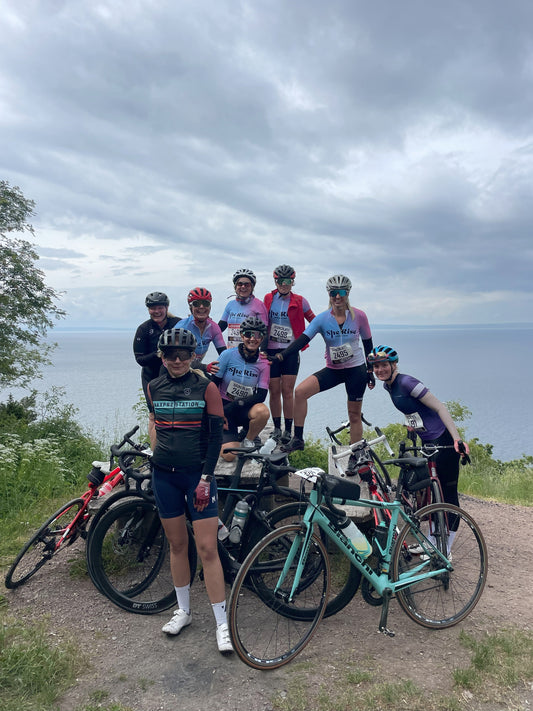Eat to stay strong – women who do cardio sports
As a woman who competes in endurance sports—whether it's running, cycling, triathlons, or cross-country skiing—nutrition is a critical factor in your performance, recovery, and well-being. It's easy to get caught up in quick fixes or old myths about "eating less" to get lighter and faster. But the truth is, your body needs fuel to get through tough workouts and stay healthy and strong over time.
Energy intake – more than just calories
Many women who exercise a lot end up in a state of energy deficiency without even realizing it. The amount of exercise increases, but the plate does not always keep up with the pace. The result can be that the body does not get enough energy, which can lead to fatigue, reduced performance and, in the long run, an increased risk of injuries and hormonal disorders (e.g. menstrual disorders). For those of you who do regular cardio sessions, it is important to dare to eat properly and adapt your energy intake to the volume of exercise.
Carbohydrates – your best friend
Carbohydrates are the primary fuel during cardio. Yet this is often where many people cut back – perhaps to avoid rapid blood sugar swings or for fear of gaining weight. But without enough carbohydrates, your muscles won’t get the glycogen they need to power through both intense workouts and longer endurance sessions. Aim for a mix of fast and slow carbs: oatmeal, potatoes, rice, quinoa, whole grains, and fruit are all great choices.
Protein – for recovery and muscle health
Protein needs increase with the amount of exercise you do, especially during cardio training where muscle breakdown is high. Aim to spread your protein intake throughout the day with good sources such as eggs, legumes, fish, chicken and dairy products. After finishing your workout, it is wise to consume both carbohydrates and protein within an hour to speed up recovery.
Fat – the building block of hormones
Fat is not only a source of energy but also crucial for hormonal balance. Many women unknowingly eat too little fat, which can affect both energy and menstrual cycles. It is especially important to get monounsaturated and polyunsaturated fats from foods like avocados, nuts, olive oil and fatty fish.
Risks of poor nutrition and hard training
Combining too little energy with too much training can lead to what is known as RED-S (Relative Energy Deficiency in Sport). It is a condition where the body is in a deficit for a long time and can negatively affect the immune system, bone health, menstrual cycle and mental health. Reduced bone density and an increased risk of stress fractures are common consequences. Fatigue, recurring illnesses and lack of training effect can also be signs that the body is crying out for more energy.
Dysfunctional patterns and myths that hold women back
Many women get caught up in norms and thought traps that can harm both performance and health in the long run. Here are some common ones:
-
Focus on appearance over performance : Training is sometimes more about changing the body than building capacity and strength. This can lead to a lack of energy and reduced enjoyment of training.
-
Fear of "building too much muscle" : Many people de-prioritize strength training for fear of becoming "heavy." In fact, strength training helps reduce the risk of injury and improve performance.
-
Ignoring your body's warning signs : Missing a period, fatigue, or recurring injuries are often seen as something to "get over," but are actually signs that your body needs more nutrition and recovery.
-
Fear of rest and recovery : Many people have difficulty resting and fill rest days with low-intensity exercise, believing that it is necessary to not "lose shape." But recovery is when the body becomes stronger.
Common misconceptions about food and exercise
A common myth is that "the lighter you are, the faster you will be." While body weight does play a role in some cardio sports, that's far from the whole truth. An underweight, energy-starved body often performs worse and recovers more slowly.
Another misconception is that "you have to earn your food" by working out. But food is fuel and a prerequisite for you to even be able to complete quality workouts and develop over time.
Last but not least: the fear of carbohydrates is a persistent myth in the training world. Carbohydrates are not a threat – they are your energy source and your best friend when it comes to performance and recovery.
Listen to your body
If you train a lot and often, your diet should be seen as part of your "equipment" - just as important as your shoes or your bike. Dare to eat enough and allow your body to recover is the key to building a strong and sustainable body that can handle both everyday life and the finish line.




